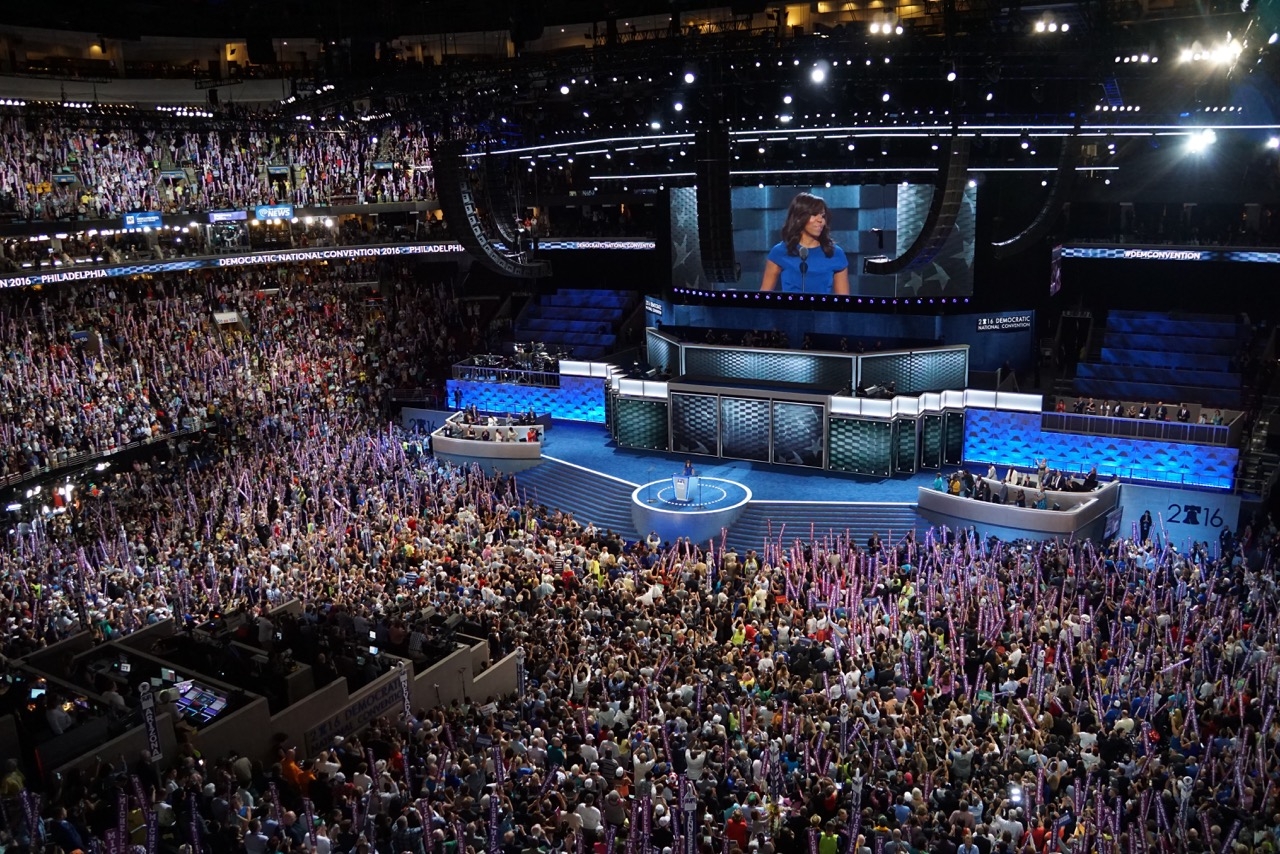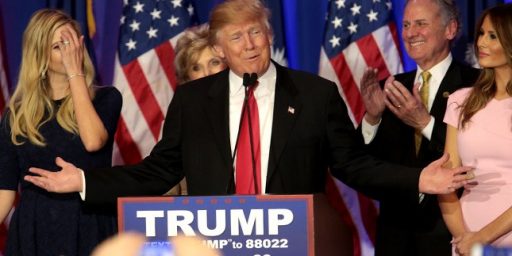Brokered Convention Fantasies: 2020 Edition
It's time to start speculating about a brokered convention again,even though it probably isn't going to happen.

It’s still a relatively quiet time before the bedlam of the 2020 Presidential campaign picks up in February with the first votes in the early primary and caucus states, so it is inevitably time for political pundits to put forward their dream scenarios for the next six months or so. As has been the case for several election cycles now, the ultimate fantasy of the politics addict is the brokered convention brought about due to the fact that none of the candidates for the Democratic nomination reach the threshold required to get a majority on the first ballot at Democratic National Convention. Today’s entry into the brokered convention fantasy is Axios, which is out this morning with a post about how such a scenario might come about:
Democrats say a very realistic scenario now calls for Pete Buttigieg to win Iowa, Elizabeth Warren to win New Hampshire, Joe Biden to win South Carolina and Bernie Sanders to win Nevada.
Why it matters: With Buttigieg’s rise in Iowa and Warren’s deflation, Democrats’ 2020 race has no real front runner as the big field begins the two-month holiday sprint to the caucuses on Feb. 3, 64 days from now.
The intrigue: Mike Bloomberg, who’s bypassing the early states, thinks a split decision opens a path for him to make a big statement on Super Tuesday (March 3), which includes California.
- But other candidates contend the former mayor will have a standing start at a time when another candidate or two will have excitement and momentum coming out of the early states.
To be sure, it is easier to see a scenario where no candidate has sufficient delegates to win the nomination outright among Democrats than it is in a Republican race. This is because nearly every Democratic primary and caucus awards delegates on a proportional basis to candidates rather than using the winner-take-all that Republicans use for the majority of their contests. Under the existing rules that will apply in 2020, any candidate that gets at least 15% of the vote will get some portion of the delegates in each state. This means that it is at least in theory harder for a Democratic frontrunner to win the nomination outright than it is for a Republican. It’s also the main reason why it took until the final contests in June for Barack Obama to get over the top in 2008 and Hillary Clinton to get over the top in 2016.
Notwithstanding these facts, though, the main thing that proportional allocation of delegates has done in the past is slow down a seemingly inevitable process and draw the race out longer than it might have been under different delegate allocation rules. In both 2008 and 2016, for example, it was clear as early as April that Obama and Clinton would ultimately be the party’s nominee even if it did take until the end of the primary process for that to happen “officially.”
The difference between 2020 and the last two elections, some might argue, is that we could end up with a race where there are more than two candidates at the top of the field who are garnering enough votes in the primaries to win at least some delegates, making it even harder for a candidate to get to a majority of delegates. As things stand now, there are four candidates at the top of the pack, former Vice-President Biden, Senator Elizabeth Warren, Senator Bernie Sanders, and Mayor Pete Buttigieg. Other potential candidates who could end up being factors in the race going forward are Senator Amy Klobuchar, who appears to be building some momentum in Iowa and, of course, former New York City Mayor Mike Bloomberg, whose actual impact on the race remains largely unknown at the moment. If we get to the point after Super Tuesday where three or more of these candidates are still running viable campaigns, then it is at least theoretically possible that nobody will end up with enough delegates to win the nomination on the first ballot.
If history is any indication, though, all of this speculation will prove to be another round of punditry fantasy. At some point, the Democratic race will come down to just two probable candidates and one of those two will end up being the party’s nominee even if it does take until the end of the primary season for that to become official. Until then, you can count on more speculation about brokered conventions. Because you’ve got to fill up all that empty column space with something, right?





Proportional allocation of delegates makes the process take longer, as you say. This gets more people involved and engaged, and feeling that the outcome isn’t a foregone conclusion by the time it gets to them, which I think is a really good thing, in and of itself. And, it builds more support and buyin for the eventual candidate.
@Doug: you beat me to this one.
You’re right to be skeptical, Doug, especially a couple months before the first actual vote. You describe it as a fantasy for politics addicts. Which is true enough. I would see it more as a pundit thing, fueled by a need to fill column inches and the supposedly liberal MSM’s love of Dems in Disarray stories.
@gVOR08:
It’s also based on what seems like an Acela Corridor fantasy that Michael Bloomberg is going to end up being a contender for the nomination.
None of those candidates won Iowa. In 1972 it was won by Edmund Muskie; in 1988 by Dick Gephardt; and in 1992 by Tom Harkin.
@Doug Mataconis: Too true.
@gVOR08:
And out of boredom with the slow-moving, eternal campaigns, and also to make a foregone conclusion more exciting, and perhaps to show off their knowledge of political arcana.
But there must be a part in wanting to see something unusual happen, like a Super Bowl going to overtime (only once in over fifty games)
While I agree that a brokered convention is pretty much a fantasy, it would be interesting to game out what would happen if there were. So here goes.
4 are clustered at the top with about 50 delegates separating them; Warren, Bernie, Biden and Mayor Pete. 2 are back quite a way but have delegates to trade; Klobuchar and Mayor Mike. At the convention Superdelegates won’t be able to vote during the first ballot and pledged delegates are released after the first ballot.
First ballot – no winner
Second ballot – no winner – most pledged delegates stay loyal and the superdelegates are split.
Third ballot – Bernie’s delegates begin drifting to Warren, while Klobuchar’s delegates begin drifting to Mayor Pete and Biden sees delegate erosion.
Fourth ballot- Bernie and Biden have withdrawn Warren, Mayor Pete and Klobuchar all gain votes.
Fifth ballot- Mayor Pete and Klubuchar along w/the superdelelgates cut a deal, Binder thrower is the nominee for Pres w/Mayor Pete VP. Mayor Mike is left in the cold.